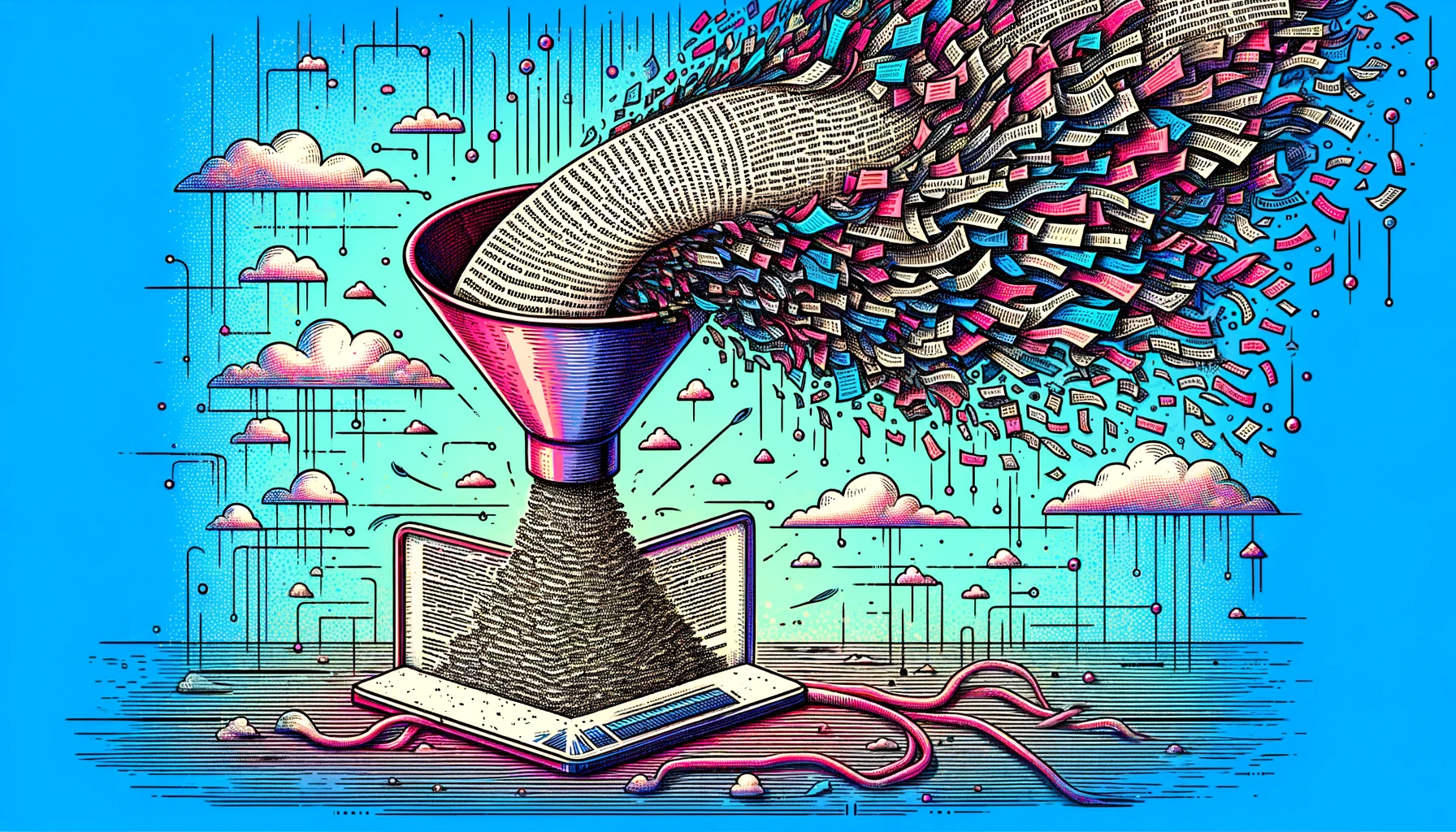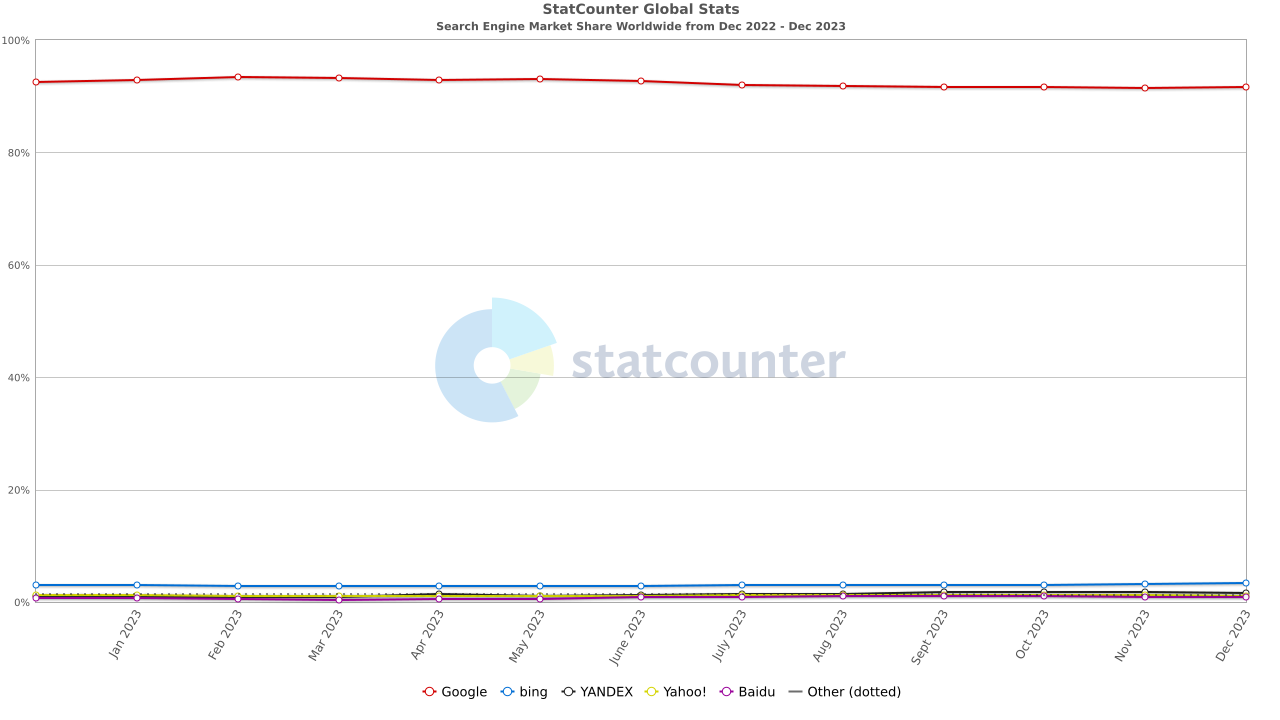Microsoft CEO Satya Nadella says summaries are a "big deal" for generative AI

The two AI giants, Microsoft and Alphabet, reported their quarterly earnings yesterday. The potential of generative AI was a dominant theme at both companies. But neither company was specific.
The fact that Microsoft and Alphabet are working so hard on generative AI has to do with the potential of the technology itself.
But perhaps even more important is the cloud infrastructure needed to run it: The cloud market is a growth opportunity for both tech companies, and generative AI is the growth engine.
Both Google and Microsoft accelerated their cloud businesses last quarter thanks to generative AI. Microsoft's cloud growth of 30% was slightly higher than last year's 28%.
At 25.7%, Google's cloud growth accelerated again from the previous quarter's 22.5%, but is still well below last year's 32%.
Microsoft has a clear competitive advantage here thanks to its OpenAI partnership. Google has not yet entered the market with its GPT-4 competitor Gemini Ultra.
In the quarterly earnings call, Sundar Pichai, CEO of Alphabet, said that Ultra will launch "soon" and that the team is already working on "next versions" and implementation in Google's products.
Summaries are a big deal now
According to Nadella, Microsoft's studies have shown productivity gains of up to 70 percent through generative AI. Copilot for Microsoft 365 users work 29 percent faster on tasks such as researching, writing, or summarizing, Nadella claims. Summaries, he adds, are a "big deal" for generative AI, and one that he uses extensively.
"In terms of what we're seeing, it's actually interesting, if you look at the data we have, summarization, that's what it's like, number one. Like I'm doing summarization of Teams meetings inside of Teams, during the meeting, after the meeting, Word documents summarization, I get something in email on summarizing. So summarization has become a big deal."
Satya Nadella
According to Nadella, one of the most commonly used features, in addition to summaries, is generating a PowerPoint file from a Word document. More broadly, writing has changed so that "the blank page thing goes away and you start by prompting and drafting," Nadella says.
Google isn't rushing its AI search because it has no reason to
Less clear is the future of Google's generative AI search, SGE, which Pichai described as "in the earliest days" and generally sounded a bit cautious about.
Generative AI is another option in the search arsenal, Pichai said. It's "answering a certain category of queries for the first time in a better way," and Google is expanding that range of questions.
But Pichai is quick to point out that there is much more to search: "Overall, one of the things I think people underestimate about Search is the breadth of Search, the amount of queries we see constantly on a new day, which we haven't seen before."
The idea is to combine all these aspects into a compelling product. As a possible scenario, Pichai describes the evolution of Bard into an AI agent that can answer questions but also perform actions. This product could complement traditional search. A paid version of Bard with access to GPT 4's counterpart Gemini Ultra is expected to be released soon.

Pichai's comments should be seen in the context of Google's core search business: It still has a consistently high market share of around 90 percent and is highly profitable. ChatGPT taking a share of online search is a thought construct that has yet to prove there is more to it than AI bubble theories.
Beyond the financial risks, there are other downsides for Google if it pushes ahead with AI-powered search. By generating answers rather than linking to them, the company would open itself up to accusations of being a publisher.
Can Google take responsibility for AI answers to billions of queries? Would it become a dominant player in the publishing business overnight? What are the antitrust implications? And what are the social and political consequences?
Who's to blame when AI doesn't respond as it should, as in the case of Microsoft's Bing chatbot, which spread false information about elections. The search bot is now a footnote in the generative AI hype, although for a few weeks a year ago it looked to some like the future of search.
Google could put a lot of money and effort into a product that ends up being only moderately better than traditional search. If at all.
AI News Without the Hype – Curated by Humans
As a THE DECODER subscriber, you get ad-free reading, our weekly AI newsletter, the exclusive "AI Radar" Frontier Report 6× per year, access to comments, and our complete archive.
Subscribe nowAI news without the hype
Curated by humans.
- Over 20 percent launch discount.
- Read without distractions – no Google ads.
- Access to comments and community discussions.
- Weekly AI newsletter.
- 6 times a year: “AI Radar” – deep dives on key AI topics.
- Up to 25 % off on KI Pro online events.
- Access to our full ten-year archive.
- Get the latest AI news from The Decoder.